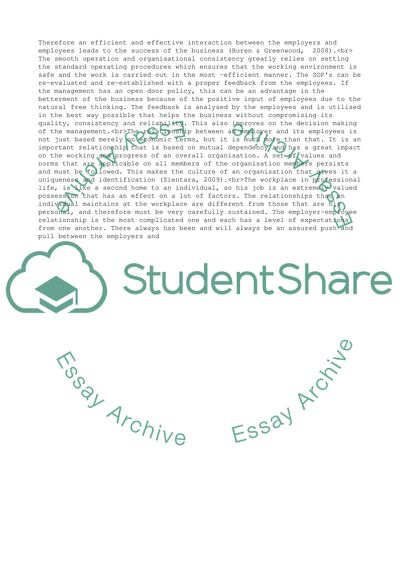Cite this document
(Employers and employees have different expectations of each other both Essay, n.d.)
Employers and employees have different expectations of each other both Essay. https://studentshare.org/management/1762343-employers-and-employees-have-different-expectations-of-each-other-both-in-terms-of-work-generally-and-in-terms-of-particular-people-and-jobs-discuss-your-discussion-should-consider-but-is-not-limited-to-expectations-of-employers-in-accordance-w
Employers and employees have different expectations of each other both Essay. https://studentshare.org/management/1762343-employers-and-employees-have-different-expectations-of-each-other-both-in-terms-of-work-generally-and-in-terms-of-particular-people-and-jobs-discuss-your-discussion-should-consider-but-is-not-limited-to-expectations-of-employers-in-accordance-w
(Employers and Employees Have Different Expectations of Each Other Both Essay)
Employers and Employees Have Different Expectations of Each Other Both Essay. https://studentshare.org/management/1762343-employers-and-employees-have-different-expectations-of-each-other-both-in-terms-of-work-generally-and-in-terms-of-particular-people-and-jobs-discuss-your-discussion-should-consider-but-is-not-limited-to-expectations-of-employers-in-accordance-w.
Employers and Employees Have Different Expectations of Each Other Both Essay. https://studentshare.org/management/1762343-employers-and-employees-have-different-expectations-of-each-other-both-in-terms-of-work-generally-and-in-terms-of-particular-people-and-jobs-discuss-your-discussion-should-consider-but-is-not-limited-to-expectations-of-employers-in-accordance-w.
“Employers and Employees Have Different Expectations of Each Other Both Essay”. https://studentshare.org/management/1762343-employers-and-employees-have-different-expectations-of-each-other-both-in-terms-of-work-generally-and-in-terms-of-particular-people-and-jobs-discuss-your-discussion-should-consider-but-is-not-limited-to-expectations-of-employers-in-accordance-w.


